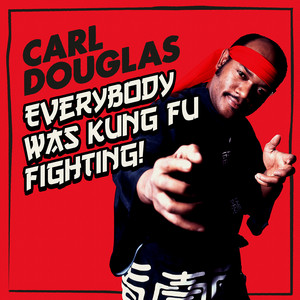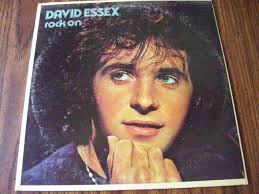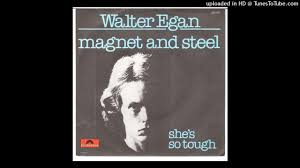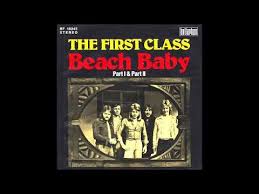1. “Play That Funky Music” – Wild Cherry (1976)

Wild Cherry was a bar band from Ohio trying to stand out in the middle of the disco craze. During one performance, a frustrated audience member yelled, “Play that funky music, white boy.” Lead singer Rob Parissi took the phrase, wrote it down, and turned it into a song that would define the band’s entire career. Released in 1976, the track shot to No. 1 on both the Billboard Hot 100 and the R&B charts. The song sold over two million copies and earned a platinum certification, driven by its unforgettable bass line and horn section. The band recorded it in Cleveland and signed with Epic Records, who helped push the single nationwide.
After the success of “Play That Funky Music,” Wild Cherry struggled to produce another hit. None of their later singles cracked the Top 40, and the group disbanded a few years later. Still, the song stayed alive on dance floors, in movies, and in commercials. It was sampled by Vanilla Ice in 1990 and included on countless party playlists. Parissi continued performing under the Wild Cherry name, living off the strength of that one track. The band may have disappeared, but that bass groove and chorus are still instantly recognizable. One song was all it took to etch their name into music history.
2. “Afternoon Delight” – Starland Vocal Band (1976)

It’s sweet, soft, and just a little bit scandalous. “Afternoon Delight” slid onto the airwaves in 1976 with airy harmonies and a feather-light melody that masked its cheeky message. While it sounded like a dreamy love song, the lyrics were a not-so-subtle ode to daytime intimacy. The contrast between its innocent delivery and suggestive theme made it unforgettable. Starland Vocal Band struck gold, winning the Grammy for Best New Artist and shooting to No. 1 on the Billboard Hot 100, then promptly faded from the spotlight just as quickly as they arrived.
Despite their quick exit, “Afternoon Delight” left a lasting imprint on pop culture. It was parodied, quoted, and most famously revived in Anchorman, introducing the cheeky tune to a whole new generation. It’s the kind of song you forget you know until you’re suddenly singing every word without missing a beat. Silly? Yes. Catchy? Definitely. And like any true one-hit wonder, it only needed one shot to earn a permanent place in music history.
3. “Dancing in the Moonlight” – King Harvest (1972)

“Dancing in the Moonlight” has a dreamy, feel-good vibe, but its origin story is surprisingly dark. Songwriter Sherman Kelly wrote it after surviving a violent mugging while vacationing in the Caribbean. While recovering, he imagined a world where people gathered peacefully under the stars this became the heart of the song. His brother Wells Kelly, drummer for King Harvest, introduced the song to the band while they were living in Paris. They recorded it in 1972 with a smooth Rhodes piano line, light percussion, and harmonies that made it an instant standout. Though the band was American, the single first caught attention in Europe before making its way to U.S. radio.
It peaked at No. 13 on the Billboard Hot 100 in early 1973 and stayed on the charts for 22 weeks. Despite the success, King Harvest never landed another hit. They broke up shortly after, leaving “Dancing in the Moonlight” as their lasting legacy. The song has been featured in dozens of films and commercials, helping it live well beyond its original chart run. A 2000 cover by Toploader revived its popularity for a new generation, especially in the UK. Still, it’s the original that feels the most timeless. Every time it plays, it sounds like the soundtrack to a perfect summer night and few people know it came from a place of pain.
4. “Seasons in the Sun” – Terry Jacks (1974)

“Seasons in the Sun” started as a much darker French song called “Le Moribond,” written by Jacques Brel in 1961. The original was a bitter farewell from a dying man to the people who betrayed him. Canadian singer Terry Jacks discovered it years later and worked with poet Rod McKuen to adapt it into a softer, more sentimental version. Jacks recorded it in Vancouver in 1973, initially intending it for The Beach Boys. When they passed, he released it himself. By March 1974, it reached No. 1 on the Billboard Hot 100 and stayed there for three weeks. It also hit No. 1 in Canada, the UK, and several other countries, eventually selling over 14 million copies.
Despite its huge success, critics often called it overly sweet or emotionally manipulative. Still, the public connected with its simple guitar line and farewell lyrics, often associating it with graduations, funerals, and bittersweet goodbyes. Jacks never had another major hit in the U.S., though he remained popular in Canada and later became an outspoken environmental activist. The song’s reputation has flipped back and forth over the years, but its staying power is undeniable. It has been covered by artists as varied as Nirvana, Westlife, and even The Muppets. Whether you love it or cringe at it, “Seasons in the Sun” taps into something deep, and that’s why it’s never fully disappeared.
5. “Pop Muzik” – M (1979)

“Pop Muzik” was a strange and catchy song that felt like it came from the future. Released in 1979, it was created by British producer Robin Scott, who recorded under the name M. He wanted to make a song that summarized the evolution of pop music and ended up blending disco, synth-pop, and spoken-word vocals into a robotic, irresistible track. With help from musicians like Wally Badarou on synthesizers and future Level 42 drummer Phil Gould, the track stood out immediately. It hit No. 1 on the Billboard Hot 100 in November and No. 2 in the UK. It was one of the first electronic-heavy songs to top the American charts, paving the way for the 1980s sound. The song’s minimalist lyrics, like “New York, London, Paris, Munich,” became pop culture staples.
Robin Scott never had another hit in the U.S., making “Pop Muzik” a textbook example of a one-hit wonder. But the song’s influence was bigger than its short chart run. It helped legitimize synth-pop in mainstream American radio and became a favorite among DJs for its perfect 114 bpm tempo. The video, which featured Scott spinning oversized records in a minimalist white set, felt like a preview of what MTV would become. U2 even used the song as their opening track during their 1997 PopMart Tour. Though Scott went on to make music in other genres, nothing matched the global impact of “Pop Muzik.” It’s a song about pop that became pop, and then disappeared.
6. “Hooked on a Feeling” – Blue Swede (1974)

“Hooked on a Feeling” was originally recorded by B.J. Thomas in 1968, but it was a Swedish rock band that turned it into a global hit. Blue Swede, fronted by singer Björn Skifs, released their version in late 1973 with a strange but unforgettable twist—an “ooga-chaka” chant lifted from a British novelty cover by Jonathan King. That chant gave the song a bizarre energy, setting it apart from anything else on the radio. In April 1974, it reached No. 1 on the Billboard Hot 100, making Blue Swede the first Swedish group to top the U.S. chart. It also hit the Top 10 in Canada, Australia, and several European countries. The band quickly released an album to capitalize on the momentum, but lightning didn’t strike twice.
None of Blue Swede’s follow-up singles came close to the same success, and the band disbanded just two years later. Skifs returned to a solo career in Sweden and later entered the Eurovision circuit. Despite being their only hit, “Hooked on a Feeling” refused to fade. It found new life in the 1990s as part of the Reservoir Dogs soundtrack and again in the 2010s when Guardians of the Galaxy used it in the trailer that launched the film’s retro-themed marketing. The song surged in downloads and streams, proving its hook was still as sticky as ever. From novelty chant to cinematic comeback, it remains one of the weirdest and most enduring one-hit wonders of the 1970s.
7. “Kung Fu Fighting” – Carl Douglas (1974)

“Kung Fu Fighting” wasn’t even supposed to be a single. It was recorded in just ten minutes as a B-side filler by Jamaican-born, UK-based singer Carl Douglas. Producer Biddu Appaiah added the song’s distinctive martial arts sound effects and a funky disco beat, thinking it was a throwaway. But after DJs flipped the record and started playing it, the track exploded. Released in the summer of 1974, it shot to No. 1 on the Billboard Hot 100 by October and stayed there for two weeks. It also topped charts in the UK, Australia, and Canada, eventually selling over 11 million copies worldwide. The song became an international phenomenon at the height of both disco fever and kung fu movie mania.
Despite the massive success of “Kung Fu Fighting,” Douglas never landed another Top 40 hit in the U.S. He did chart briefly in the UK, but the novelty aspect of the song made it difficult to follow up with anything serious. The track, however, never left the cultural conversation. It has been used in commercials, movies, video games, and TV shows, often as a shorthand for retro flair or martial arts parody. Some critics have called it kitschy or dated, but its beat, chorus, and quirky charm are instantly recognizable. Few songs captured a moment as perfectly as this one. It’s silly, yes, but it’s also a pop time capsule that continues to get crowds moving nearly 50 years later.
8. “Rock On” – David Essex (1973)

“Rock On” was unlike anything else on the radio in 1973. British singer and actor David Essex wrote the song himself, inspired by James Dean and the sound of early rock and roll. But instead of using classic rock instruments, producer Jeff Wayne built the track around a slow, moody bass line, echoed vocals, and minimal percussion. It had a haunting, almost underwater vibe that set it apart from the glam rock dominating the UK at the time. The single hit No. 5 on the U.S. Billboard Hot 100 in 1974 and went to No. 3 in Canada. It was Essex’s only major hit in America, though he had a longer music and acting career in the UK.
“Rock On” became a cult classic thanks to its eerie sound and Essex’s cool, detached delivery. The track appeared in the 1973 film That’ll Be the Day, which Essex also starred in, and it helped launch his crossover fame. Over the years, the song’s oddball production has earned respect from critics and musicians alike. It was covered by Michael Damian in 1989 and went to No. 1 again, proving its staying power. Essex continued working in theater and television in Britain but never charted in the U.S. again. For American listeners, “Rock On” is a one-off wonder, strange, stylish, and unforgettable.
9. “Magnet and Steel” – Walter Egan (1978)

“Magnet and Steel” came out of Southern California’s soft rock scene and was directly tied to the golden era of Fleetwood Mac. Walter Egan, a singer-songwriter and former art student from New York, wrote the song about Stevie Nicks, with whom he had a brief romance. Nicks and Lindsey Buckingham provided background vocals and helped produce the track, giving it that dreamy, layered sound typical of Fleetwood Mac’s late-1970s work. Released in 1978, it reached No. 8 on the Billboard Hot 100 and stayed on the chart for 22 weeks. The song was smooth, romantic, and perfectly timed for the mellow radio wave dominating American airwaves.
Despite the star power behind it, Egan never landed another Top 40 hit. His follow-up singles stalled, and although he continued recording and performing, “Magnet and Steel” remained his only major success. The song has lived on in pop culture thanks to its inclusion in movies like Boogie Nights, Deuce Bigalow, and This Is 40. It also got a boost from being on the Guardians of the Galaxy Vol. 3 soundtrack. With its warm harmonies and laid-back vibe, it became a soft rock classic. It’s the kind of track that instantly brings back the feeling of cruising with the windows down. One perfect radio gem, and that was enough to cement Egan’s place in one-hit wonder history.
10. “Precious and Few” – Climax (1972)

“Precious and Few” was a slow-burning love ballad that came out of nowhere and became one of the biggest soft rock hits of the early ’70s. Climax was a short-lived band from Los Angeles, formed by former members of The Outsiders. They recorded “Precious and Few” in 1970, but the song didn’t take off until it was re-released in late 1971. It peaked at No. 3 on the Billboard Hot 100 in February 1972 and reached No. 1 on the Cash Box chart. The track was also a hit in Canada and became a popular choice for weddings and slow dances. With its heartfelt lyrics and gentle build, it fit perfectly into the AM radio format of the time.
Climax never managed to follow it up with another major hit. A second single, “Life and Breath,” briefly charted but didn’t crack the Top 40. The group disbanded soon after, leaving “Precious and Few” as their only lasting mark on pop history. The song has been covered several times, but the original remains the version most people remember. It’s often included on soft rock and ’70s love song compilations and continues to get airplay on oldies stations. Though the band faded quickly, that one perfect ballad has lived on for over 50 years. For anyone who grew up in the era, it’s a song tied to first loves and long drives, and that emotional pull is what makes a one-hit wonder last.
11. “Beach Baby” – The First Class (1974)

“Beach Baby” sounded so much like the Beach Boys that many listeners assumed it was them. In reality, it was a studio creation by British singer Tony Burrows and songwriter John Carter. Burrows was already known in the UK for singing lead on other one-hit wonders like “Love Grows (Where My Rosemary Goes),” but “Beach Baby” was his biggest U.S. success. Released in 1974, the song paid tribute to the surf pop of the early ’60s with soaring falsettos, lush harmonies, and a sunny orchestral arrangement. It peaked at No. 4 on the Billboard Hot 100 and stayed on the chart for over four months. Its nostalgic lyrics, about teenage love and summer’s end, struck a chord with boomers growing up during that era.
Despite the hit, The First Class was never a real touring band. It was assembled solely to record the song, and no other singles made an impact in the U.S. The track became one of the last big hits of the early-’70s nostalgia wave, which also included reissues of surf rock and doo-wop classics. “Beach Baby” has appeared in films and commercials and continues to show up on summer playlists. It’s the rare one-hit wonder that feels like a tribute and a time capsule at the same time. Though The First Class faded from view, their one hit captured a specific sound and memory better than almost any imitator of the era.
12. “Don’t Give Up on Us” – David Soul (1977)

Before he topped the charts, David Soul was best known as Hutch from the hit TV series Starsky & Hutch. But in 1977, he surprised fans with a soft rock ballad that showed a more tender side. “Don’t Give Up on Us” was released in January and quickly gained traction on adult contemporary radio. By April, it hit No. 1 on the Billboard Hot 100 and stayed in the Top 10 for several weeks. The song also topped the charts in the UK and Australia, proving Soul’s global appeal. It was produced by Tony Macaulay, the same hitmaker behind “Build Me Up Buttercup,” and featured gentle guitar, orchestral backing, and Soul’s emotionally raw vocals. The track was a massive hit during a time when actors turning into pop singers was rare—and risky.
Despite its success, Soul never returned to the U.S. Top 40. He continued releasing music, especially in the UK where he had several more hits, but American radio largely moved on. Still, “Don’t Give Up on Us” remained tied to the actor’s legacy. It has been featured in films, including Starsky & Hutch (2004), where Soul parodied himself in a cameo. The song continues to pop up in retro playlists, known for its emotional chorus and slow-dance-ready pace. Soul himself has said he never expected the song to be remembered this long. One role and one ballad were enough to lock down his place in pop culture on two fronts.
They Had One Shot, and They Nailed It

These songs didn’t just chart, they stuck in our heads, showed up in movie trailers, and turned first-time artists into pop legends overnight. Most of these musicians never cracked the Top 40 again, but that one perfect track was enough to leave a mark. Whether it was a funky bass line, a heartbreaking lyric, or a weird chant you still can’t explain, each of these hits became part of our collective soundtrack.
Remember one we missed? Or have a one-hit wonder from your own past you still crank up every time? Drop it in the comments, we’d love to hear which forgotten gem still lives rent-free in your head.
This story about One-Hit Wonders, was featured first on DailyFetch


